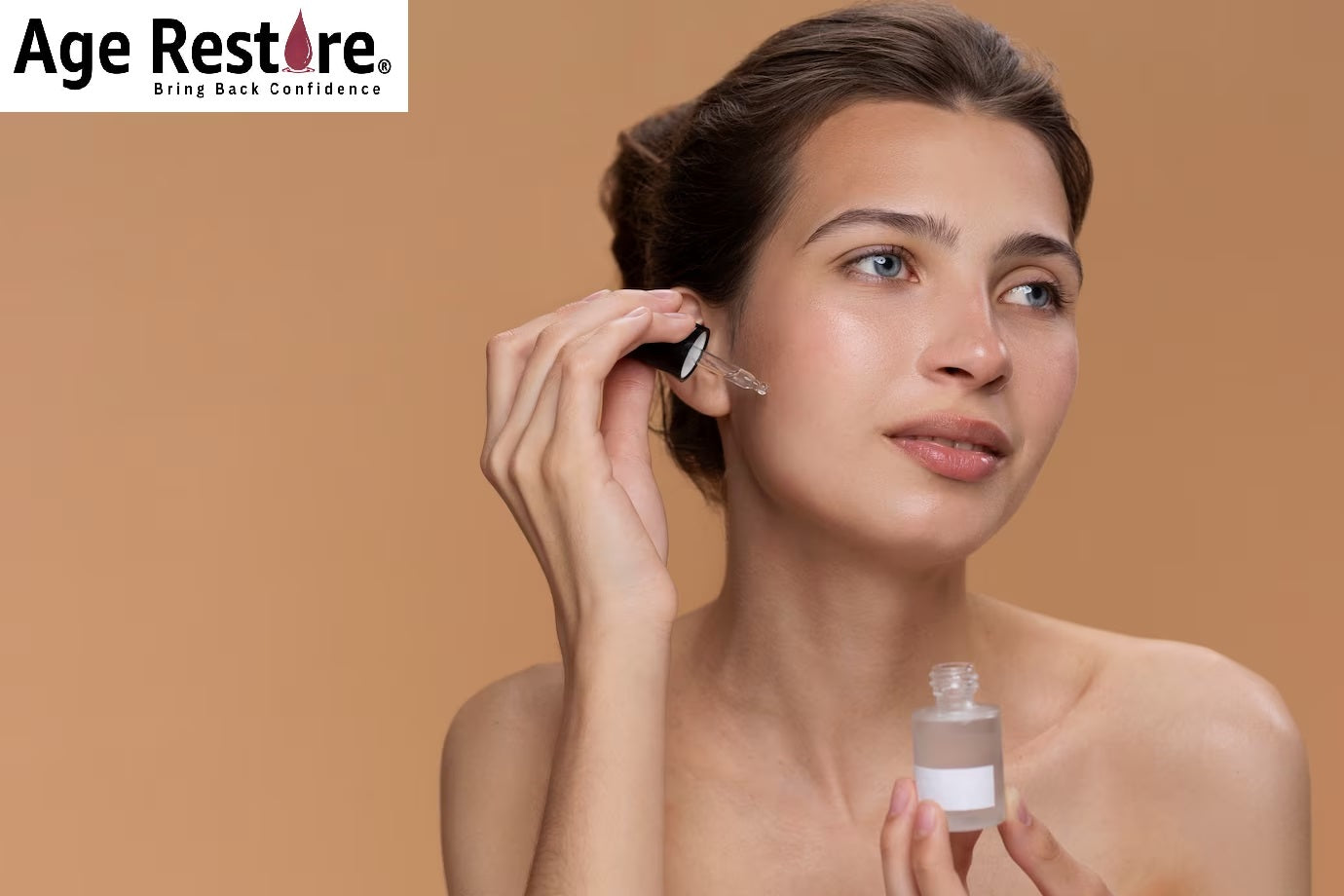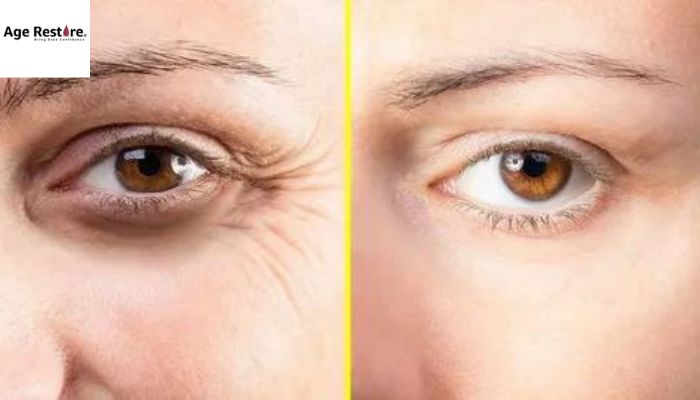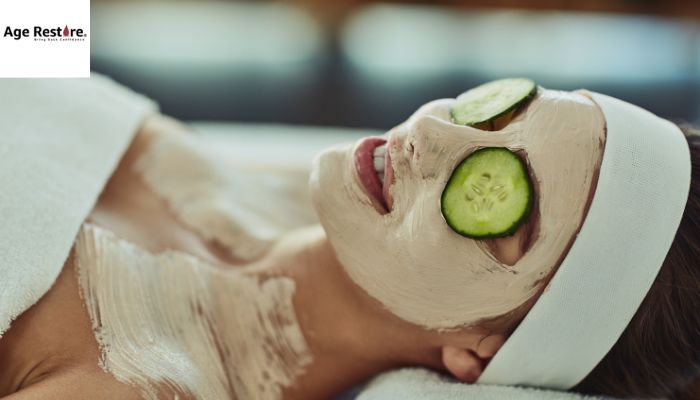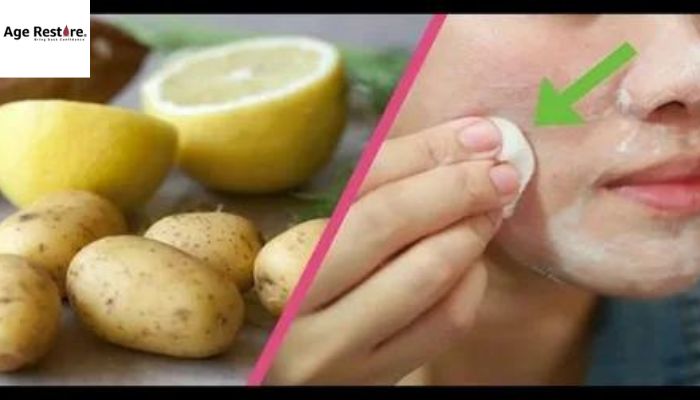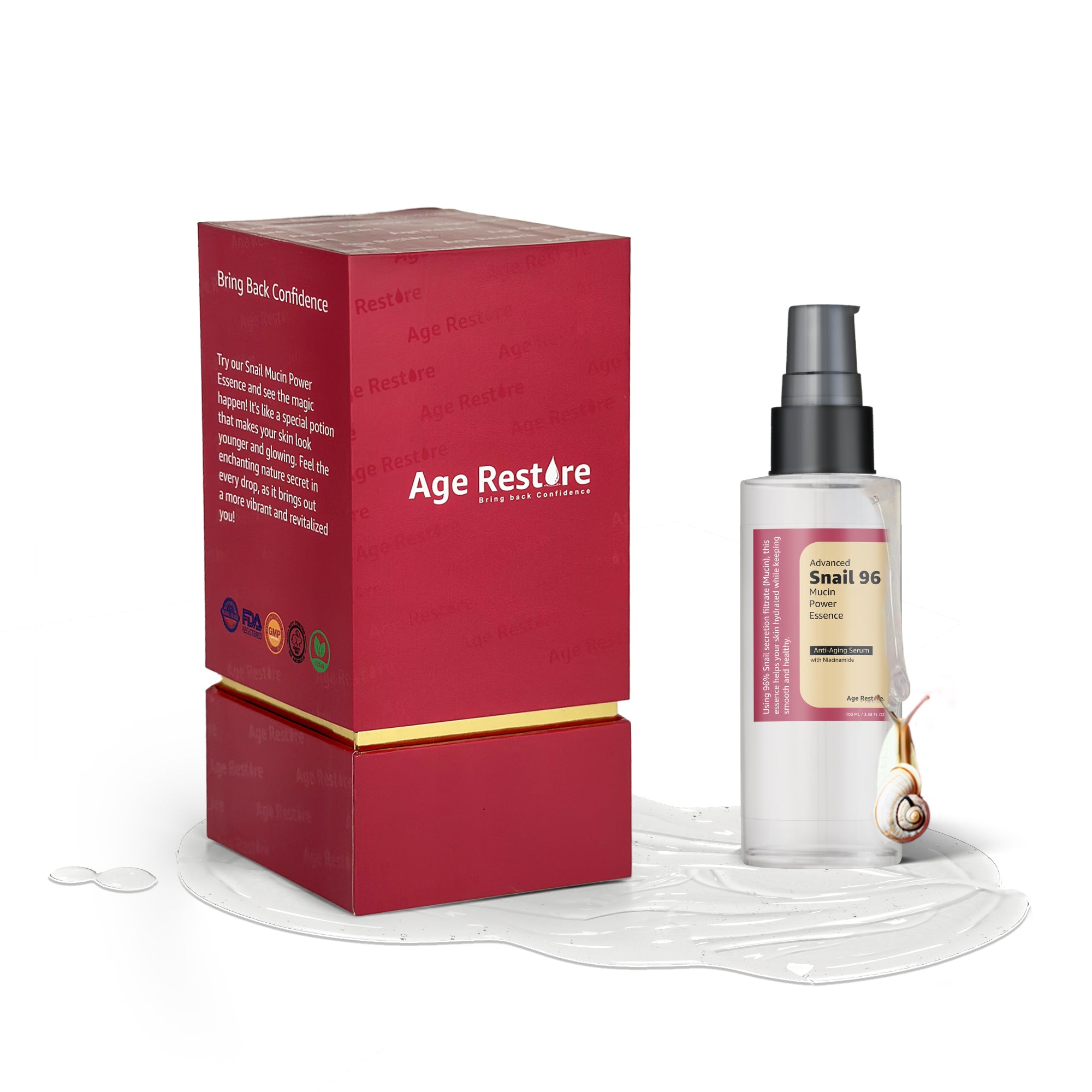
How To Turn Stressed Skin Into Your Best Skin
Stresses Can Afflict Our Skin In A Negative Way; Let's Discover Together How We Can Turn Stressed Skin Into Your Best Skin Ever
Your skin is the largest organ in your body, and its state reflects exactly what's going on internally. When you're relaxed and full of energy, for instance, that often manifests itself on the outside - perhaps we could all share a group hug to celebrate those rare but special days?
When we feel overworked and emotionally worn out, our skin often follows suit by becoming dull, rough and stressed-out.
Why does stress and emotional anxiety have such an enormous effect on skin health? Well, when you experience any form of distress, your brain triggers its defense mechanisms to prepare your body to go into fight or flight mode and prepares itself to either defend itself against attack or flee from it. By doing so, your nervous system releases hormones such as cortisol and adrenaline into the bloodstream that prompt your heartbeat to speed up, your breath speed up and muscle tension to increase. Stressful situations, like job interviews or emergencies, require hormones to go into overdrive temporarily, but when stress becomes the norm rather than an exceptional event, these same hormones become overactive all of the time and things start going awry; headaches and nausea may occur while digestive health may suffer; in extreme chronic cases you could even increase your risk for heart attack or stroke.
Your skin is also an integral component.
Studies demonstrate the adverse impact of acute (temporary) and chronic (consistent) stress on skin health, both acutely (temporarily) and consistently. Cortisol spikes may increase inflammation while encouraging sebaceous glands to produce far too much oil than your skin needs (leading to breakouts!) Additionally, too much cortisol breaks down essential collagen supplies, reduces hydrating hyaluronic acid hydration levels, dismantles barrier function balance and alters pH levels; all this spells bad news for skin's wellbeing with various symptoms including blocked pores acne breakouts dehydration dehydration irritation and flare ups of existing conditions like rosacea psoriasis or eczema flare ups occurring as well.
At its heart lies stress-induced skin. Unfortunately, its presence can only add further anxiety and depression to an already stressful existence. Sigh.
Stressful times don't need to lead to discolored skin. Here are seven tried-and-tested remedies we've come up with as ways of relieving symptoms...
De-Stress With A Journal
Before beginning to improve your skin, you need to address all aspects of health and well-being. An effective way of doing so is through journaling: take note of habits or experiences that make you anxious or uncomfortable and record how it made you feel, how it affected you, what reactions there were from others, as well as any steps taken by yourself or others to alleviate stress levels or alleviate tension. By tracking stress levels over time and reviewing how you reacted or improved upon them, this allows you to identify patterns or trends and find strategies for relieving tension as well as ways of improving mood or helping relax your nerves.
Sleep Like A Queen
At skin experts, we recognize the value of a good night's rest as an antidote for stress. Cortisol levels drop dramatically while asleep. Therefore, missing out on some restorative sleep could deprive your skin of vital repair and rejuvenation benefits like increased collagen production, cell turnover speed up, blood flow increases, muscles relax and antioxidants work their magic to repair damage caused during the day
The Mayo Clinic recommends getting at least seven hours of quality rest each night, but the key to successful restful slumber is creating an efficient routine and sticking to it. Make sure your bedroom is dark, quiet and not too warm and limit caffeine, food and smartphone use at least two hours prior to sleep time.
3. Dial Down Your Actives
Retinol, vitamin C and glycolic acid can all be great benefits when your barrier function is working smoothly; but when stressed strikes your skin's fragile equilibrium it becomes compromised, making healing and repair difficult to achieve. An overload of actives may then become too much for it to handle; in such an instance try dialing back your actives until the barrier function can rebuild itself; for instance if you normally exfoliate every other day try doing it every other week instead; similarly if using Retinol Facial Serum every night instead - try switching this out with our soothing Niacinamide Facial Serum for sensitive skin!
Trust us; taking time out for yourself and giving your skin some much-needed TLC during times of stress is absolutely crucial.
4. Avoid Triggering Skincare Ingredients
We advise staying clear of ingredients known to trigger skincare reactions at all times; however, during times of emotional and mental strain your barrier function might not be working optimally, this becomes even more essential.
Keep your skincare routine as straightforward and straightforward as possible and avoid products containing sulfates, which may help cleanse effectively but could actually worsen dryness, itching, redness and breakouts - particularly if your skin feels stressed out.
Cleansers that contain non-drying surfactants such as disodium lauryl sulfosuccinate and disodium 2-sulfolaurate are an ideal choice for sensitive skin, such as our Vitamin C Brightening Cleanser which also features rose hip oil to soothe inflammation and redness.
5. Save Experimenting with New Skincare Products For Another Time
While trying out something new can be thrilling, now may not be the right time to introduce something unfamiliar into your daily regimen. Stressed skin may react more harshly than usual to certain ingredients that typically feel great; try testing new ones at another time!
Stick with what you know now, and save exploring new concepts for later.
6. Enjoy A Cup Of Tea
Research suggests that drinking black tea may help lower cortisol levels in your bloodstream and make you more relaxed and positive, helping ease stress and anxiety. Even making tea on its own can provide comforting relief from stress.
Tea can help elevate mood thanks to an amino acid called L-Theanine which promotes relaxation, alleviates anxiety and fatigue reduction while supporting cognitive functions such as memory.
7. Give Yourself A Break
Everyone goes through stressful periods in their lives, so it is natural for things to become overwhelming from time to time. Try not to allow your stress to take control; otherwise it can create a downward spiral for both your health and skin which is difficult to escape from. Instead practice deep breathing regularly throughout the day to center yourself, take short walks for mental refreshment, or read for just 10 minutes in the afternoon for relaxation purposes.
These healthy habits are wonderful for improving both emotional and skin health, leading to brighter complexions and maintaining stronger, radiant complexions. Simply put.
Checkout our anti-aging serum

